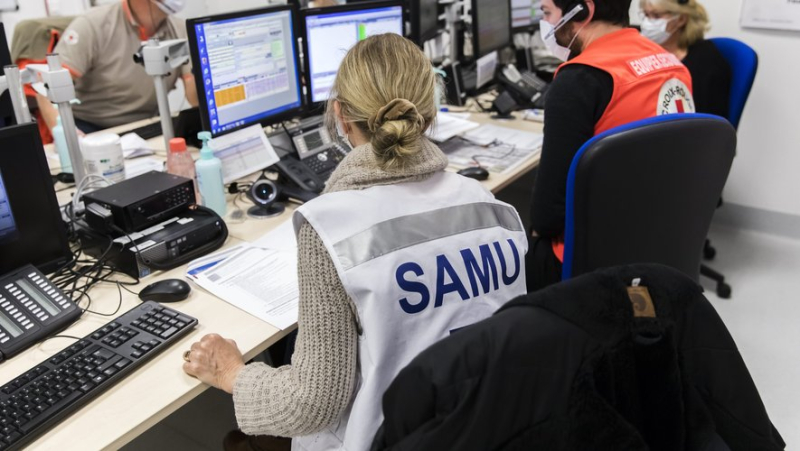“The drum of a washing machine”: calls for emergency services experienced from the inside, edifying testimony at the trial of the death of Naomi Musenga

Opérateur du Samu, un métier difficile, témoigne l'ex responsable du Samu où l'appel de Naomi Musenga avait été réceptionné. Illustration MAXPPP – Vincent Isore
“It's an ocean of requests and you have to know how to distinguish the difficulty”: at the trial of the operator who mocked Naomi Musenga on the phone at the end of 2017, a young woman who died shortly afterwards at the Strasbourg hospital, the former head of the Samu gave an enlightening testimony on Thursday, July 4, on the working conditions of medical regulation assistants.
“We are torn between a clear failure, immense regret for the family, and understanding for our operators who work in very difficult conditions”. It is with these words that Hervé Delplancq, resuscitation anesthetist and head of the Samu at the time, begins his presentation at the bar of the Strasbourg court, during the trial of the ;operator who had mocked Naomi Musenga, during a call to the Samu shortly before her death.
His remarks express both a feeling of guilt and the impression that, faced with the working conditions of the people responsible for answering the telephone to deal with vital or non-existent emergencies, it was impossible that' ;#39;no mistakes are made. He resigned from his position shortly after the incident.
Putting things into perspective, "extremely difficult"
In the "incessant flow of calls", the abdominal pains, the very ones that complained Naomi Musenga, 22, when she called for help, constitute "a trap", explains the doctor, because it is "extremely difficult to distinguish between something serious and something trivial".
To establish distinctions between cases, "that supposes other questions, obviously: where? how? what intensity ?", he explains, in response to Isabelle Karolak, the president, who questions him.
Shortly before, the judge highlighted that the operator, Corinne M., prosecuted for "failure to assist a person in danger", did not' ;had hardly asked any questions to the young woman in distress who struggled to express herself, hanging up without bothering to refer her to a regulatory doctor.
"Confirmation bias"
Faced with this seemingly obvious failure, Doctor Delplancq nevertheless points to an obvious cognitive bias.
"The call made to our operator is played down by the first responder", a firefighter operator who had spoken with Naomi Musenga before transferring her to the Samu, without taking the trouble, either, to trigger a rescue team.
The recording of the conversation between the two operators, broadcast at the hearing, effectively suggests that Naomi Musenga's request is not taken seriously by the fire officer.
"We understand that it's not that serious, and I think that (Corinne M.) s& #39;is trapped : she is in a confirmation bias, another professional has analyzed the call, and she remains on the same line”, continues Hervé Delplancq. “Of course, we should know how to go back, but the biases are unconscious. Everyone, every day, is subject to these biases."
He also returns to the work rhythm of medical regulation assistants, subject to 12-hour days.
"It doesn't stop"
"I think it's too much. You're in the drum of the washing machine. You wish someone would push the button to make it stop, but it doesn't stop", he imagines, advising "any young regulator not to do this job for their entire career".
However, it does not minimize certain failures. The patient's identity information was not recorded ? "This is not recommended practice", he says. The conversation, short and ended early ? "The response was not up to what one might expect", he admits.
"Continuing our journey"
It was he who sent Naomi Musenga's family the recording of her conversation with the Samu operator.
"Me and my husband, when we got this tape, we had a lot of questions", euphemizes the mother of the victim, Honorine Musenga, accompanied by her children in court. Her husband died during the procedure.
Listening to this tape, it was like "someone was stabbing (Naomi) to end her life, that's what we felt", assures the mother. "It hurt us for seven years, for us to get to this day".
She receives the apologies that Corinne M. expressed at the opening of the hearing, to whom she "forgive". "We need to heal our wounds to move on", she concludes.




